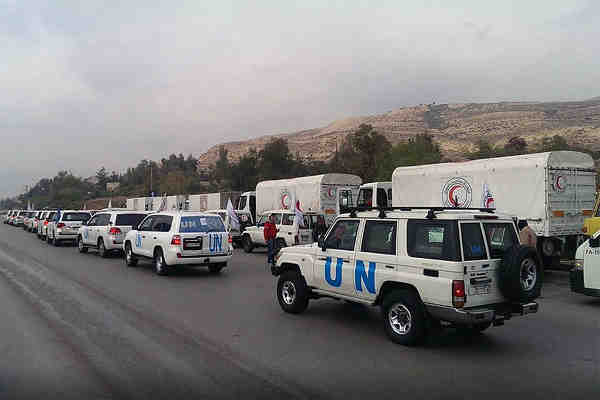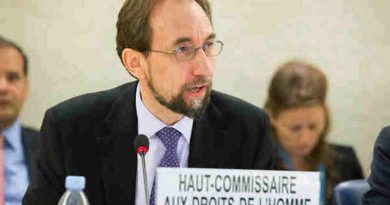Syrian Ceasefire Sees Drop in Violence: UN Envoy

Nearly 24 hours after the latest cessation of hostilities in Syria began, a United Nations (UN) envoy said Tuesday that despite allegations of mortar shelling and airstrikes on Monday evening, violence in the country has declined substantially.
“By early morning, every report we have been seeing indicates a significant drop in violence,” the UN Special Envoy for Syria, Staffan de Mistura, told a news briefing at the UN Office at Geneva.
“Today, calm seems to have prevailed across Hama, Latakia, Aleppo City and rural Aleppo and Idlib – with only some allegations of sporadic and geographically isolated incidents.”
Mr. de Mistura also reported that sources on the ground in Aleppo city said the situation had “dramatically improved” with no airstrikes, while the capital, Damascus, and central Syria also remained calm with “reports limited to some clashes around Harasta between government and opposition forces.”
“No bombs, more trucks,” says UN Special Envoy, as he expresses hope for ceasefire to hold in Syria. Credit: UN News Centre
In addition, while incidents have been reported in the city of Al Qunaitra, capital of the south-western province of Quneitra, including between the al-Nusra Front and government forces, violence has dropped considerably compared to other days.
According to the UN Office for the Coordination of Humanitarian Affairs (OCHA), Syria is one of the most complex and dynamic humanitarian crises in the world today.
Since March 2011, more than a quarter of a million Syrians have been killed and over one million have been injured. Moreover, 4.8 million Syrians have been forced to leave the country, and 6.5 million are internally displaced, making Syria the largest displacement crisis globally.
In 2016, an estimated 13.5 million people, including six million children, are in need of humanitarian assistance. Of these 5.47 million people are in hard-to-reach areas, including close to 600,000 people in 18 besieged areas.



